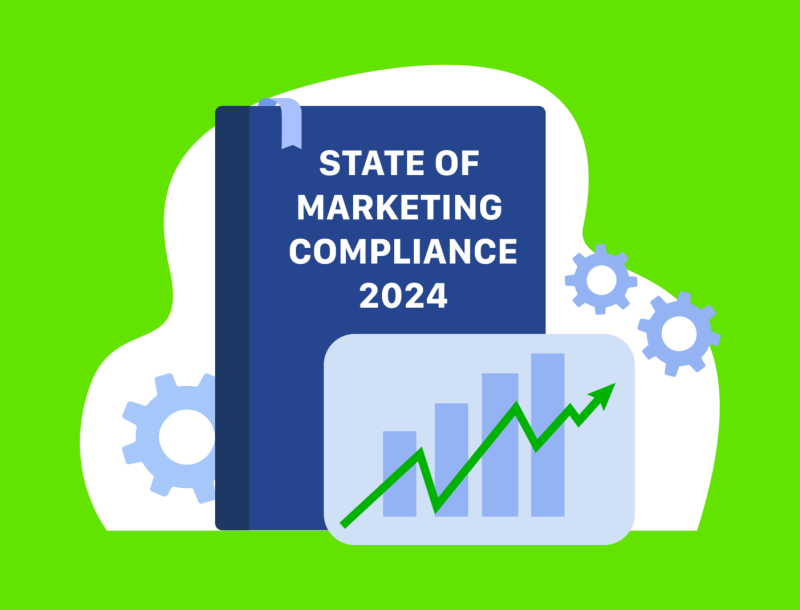2021: An Outlook from Chief Compliance Officers and General Counsels

The first event of COMPLY Summit on February 4th was full of industry experts who shared their insights on the current state of the regulatory environment. For this session led by Protiviti, we heard from CCOs and General Counsels from Upstart, BBVA, and Plaid to learn how they’re overcoming major obstacles while managing an established risk appetite and remaining competitive.
Expectations for 2021
While 2020 taught us to expect the unexpected-what we can expect for certain in 2021 is increased regulatory scrutiny. Rohit Chopra has been nominated as the new CFPB Director, and-as a former colleague of Chopra-Meredith Fuchs, CCO at Plaid, believes that he will be an aggressive regulator and that we can expect the return of aggressive regulatory oversight and enforcement by the Bureau.
As for the rest of 2021, there are a few things that have already become clear, says Meredith:
- There will be a heavy focus on the pandemic and the impact it’s having on consumers.
- Fair lending is another issue that’s expected to return, something that was deprioritized over the past four years.
- The CFPB is already in the midst of rulemaking around consumer access to data related to Section 1033 of the Dodd-Frank Act.
- There will likely be a focus around policy issues between banking and fintech, addressing concerns over classifications, who can provide each service, and how they will be regulated.
Because technology and FinTech have been expanding so much, we’ve seen FinTech and banking come up against each other. There are really interesting policy issues ahead, tackling questions such as: “what is a bank?” “what are banking services?” “who can provide those services?” and “how should those be regulated?
—Meredith Fuchs, Plaid
Agile Principles
Celie Niehaus, CCO at BBVA, is leading a compliance transformation to an agile structure that functions in multidisciplinary teams with empowered autonomous and execution-oriented compliance professionals. With an agile structure, teams are able to be much more flexible and adaptable, allowing them to be fully functional and empowered.
Within the first 6 months of the transformation, Celie’s team at BBVA experienced over a 30% increase in productivity-completing projects more quickly and delivering to business partners.
At BBVA, the agile principle has been implemented across all jurisdictions. It’s a global initiative, and operating similarly with each other makes it much easier to deliver to customers and helps deliver on risk.
An agile mindset makes it easier to support the business, provide real-time red flags and concerns, and deliver products more effectively to the market, Celie says. It’s especially helped BBVA in the new digital business areas where innovation was taking place-so compliance is more agile to help the business continue to deliver to the market.
Operating similarly with each other in the functions makes it really much easier to deliver to our customers AND deliver on risk
—Celie Niehaus, BBVA
Building Trust and Staying Compliant
As companies are growing and scaling, how can they build trust with partners while verifying and reporting on their ability to meet compliance requirements when it comes to consumer protection?
Annie Delgado explains that Upstart meets this challenge in 2 ways:
- Investing in a strong compliance program and strong compliance team
- Have an ongoing transparency discussion with bank partners about their programs
Keeping a very open dialogue with the key stakeholders so that they consistently feel like they have a really strong pulse on what’s happening with your program is a great way to keep that trust with your partners, and has proven successful for Upstart.
It’s critical for Upstart that our partners are feeling good about our compliance program and our compliance approach, so it’s an area that we just continue to invest in.
—Annie Delgado, Upstart
Adoption of Digital Compliance Programs
A survey conducted by Plaid found that 60% of people are using more fintech now than before COVID-19, and 80% said they could manage their financial life without going into a bank.
Technology provides a lot of opportunities for compliance programs, says Meredith. For example, AI could be used for contract review and identifying obligations within the contract that are going to have to be built into controls in the system.
Compliance is helping the consumer in the background in ways they don’t realize. Similar to what Meredith mentioned, AI can be used for monitoring consumer complaints to identify areas of improvement, says Celie. For example, recorded calls from call centers can be turned into data to identify trends or keywords and can uncover a lot about the customer experience and potential issues.
Speed, efficiency, effectiveness, and compliance are all being driven by various high-technology applications.
—Shelley Metz-Galloway, Protiviti
What To Focus on in 2021
We asked these executives what their priorities are going forward. Here’s what they said:
Continuing to shift compliance programs from qualitative approaches to quantitative approaches will be a focus in 2021.
—Annie Delgado
In 2021, we’d really like to focus on understanding how to ensure that we are categorizing partnerships with banking vs. third parties.
—Celie Niehaus
Over the next year, we’d like to focus on having industry, consumer groups, and agencies come together to create a system that works and keep consumers at the forefront.
—Meredith Fuchs
Your Questions, Answered
There were a few questions from the audience that our speakers weren’t able to answer during the live event-but don’t worry, we got those questions answered!
Q: Was there any regulatory risk concerns associated with Simple that resulted in BBVA’s action to shut down the product?
A: BBVA USA continually evaluates strategic priorities and resources, including existing and potential partnerships with outside organizations. We took the opportunity of the pending merger with PNC to reassess our goals for BBVA USA. As a result, we made the strategic decision to accelerate some changes and stop work on several initiatives. That included the closing of Simple.
Q: Can Celie provide the key aspects of the agile mindset that we can apply in our daily work?
A: While we may all suffer from video and meeting fatigue, a key Agile principle is information sharing. This is typically done through daily meetings (aka Stand Ups), which run no longer than 30 minutes. We continue to hold our Stand Ups remotely and review what was delivered, what is in queue or will be completed next, if there are any obstacles, assistance needed, etc., and how to improve our processes. The team operates more effectively thanks to sharing and operating from common information. They are also able to maintain their effectiveness by escalating obstacles and needs, which can be taken on by others while they continue to focus on their business as usual activities.
This article only scratches the surface of what this panel discussed-watch the full session on-demand in the COMPLY Content Library for more insights.


